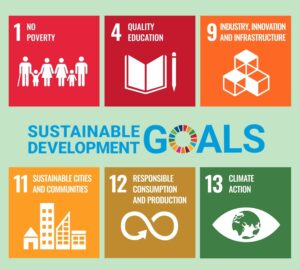Office Furniture Decommissioning with Green Standards:
Prioritizing Donation, Reuse, and Value Recovery
When you hear the word “decommissioning,” you may think of nuclear power plants closing down or military equipment being taken out of service — major operations with major consequences. You may not think of corporate office renovations. But the fact is that in North America alone, more than 10 million tons of furniture, fixtures, and equipment are send to landfill each year during times of workplace change.
When Green Standards coined the term sustainable office decommissioning 15 years ago, we wanted to highlight the scope of this problem. We also wanted to explain that there is a clear solution: simple in theory, complex in logistics, and proven time and time again across 2,000 projects with some of the largest companies in the world.
What is Office Furniture Decommissioning?
Sustainable office decommissioning is the process of removing, donating, and repurposing office furniture equipment and supplies to create sustainable and eco-friendly workplaces. Green Standards is a leader in this space, emphasizing donation, reuse, and responsible recycling to help companies reduce waste, enhance their Environmental, Social, and Governance (ESG) initiatives, and maximize the value of their assets.
Why Green Standards is Leading the Way in Sustainable Decommissioning
Green Standards was founded in 2009 on the insight that traditional office relocations and closures generate unnecessary waste. Companies often dispose of furniture, fixtures, and equipment that still have years of potential use, leading to excessive landfill waste. It is estimated that 80% of an office inventory ends up in landfill with conventional solutions. Green Standards transforms this process by focusing on office furniture donation, reuse, and recycling to unlock the hidden value in surplus assets.
The Value of Donating Office Furniture
One of Green Standards’ core missions is to maximize the value of surplus office furniture through donation. This allows companies to support non-profit organizations, schools, and community groups, so these items find new uses instead of being discarded. This approach not only diverts waste from landfills but also contributes to community impact and social responsibility.
With a global network of over 20,000 vetted non-profits, Green Standards has facilitated donations of more than $40 million worth of furniture and equipment, helping businesses support communities while achieving sustainability goals.
How Green Standards’ Turnkey Process Prioritizes Donation and Reuse
Green Standards offers a turnkey office decommissioning solution that simplifies sustainable asset management.
Here’s how we effectively repurpose surplus office furniture:
- Comprehensive Asset Assessment: Evaluates every item to determine its potential for donation, resale, or recycling.
- Donation Matching: Uses an extensive network to connect companies’ surplus furniture with local non-profits, charities, and schools, ensuring maximum reuse.
- Full-Service Logistics Management: Handles all aspects of furniture removal, transportation, and delivery to donation recipients.
- Transparent Reporting for ESG: Provides detailed reports to track social and environmental impact, supporting ESG reporting and compliance.
Leveraging a Vetted Network of Resellers and Recyclers to Maximize Value
A unique feature of Green Standards is its vetted network of resellers and specialized recyclers. Our network maximizes the use of every item, helping companies reduce logistics costs tied to decommissioning office spaces.
How the Network Works:
- Maximizing Resale Value: Companies recover part of their investment by reselling high-quality furniture through trusted partners when donations aren’t possible.
- Sustainable Recycling: Green Standards works with recyclers to responsibly process materials from items that can’t be reused. Materials like metal, plastic, and textiles can be responsibly processed, you just need find the right recycler.
- Offsetting Costs: By monetizing surplus assets through resale, Green Standards can offset logistics costs, making sustainable decommissioning more cost-effective.
Key Benefits of Donation and Reuse in Sustainable Office Decommissioning
- Supporting Community Organizations
Donating office furniture helps businesses support local non-profits, charities, and schools, turning waste into valuable resources for communities.
- Enhancing ESG Initiatives
Businesses that prioritize donation and reuse can significantly enhance their ESG profiles by demonstrating a commitment to sustainability and social impact.
- Reducing Environmental Impact
Donating and reusing furniture prevents tons of waste from ending up in landfills, reducing a company’s carbon footprint and supporting the circular economy.
- Cost Efficiency
Green Standards’ approach of leveraging a network of resellers and recyclers helps businesses recover value from surplus assets, effectively defraying logistics costs.
The Benefits of Using Donated and Reused Office Furniture
Cost-Effective and Sustainable
Opting for donated or reused office furniture is a cost-efficient and sustainable solution for businesses looking to reduce expenses while supporting their sustainability goals. Green Standards offers access to high-quality, pre-owned furniture that aligns with zero-waste strategies.
Promoting a Circular Economy
By choosing reuse and donation, companies actively support a circular economy, continuously repurposing resources to meet sustainability objectives.
Creating Professional Workspaces on a Budget
Green Standards provides high-quality, used office furniture that offers the same functionality and aesthetics as new items, helping companies create stylish workspaces without breaking the bank.
Discover Sustainable Office Decommissioning Solutions with Green Standards
Green Standards makes it easy to find sustainable office furniture solutions that align with your company’s ESG initiatives and net-zero goals. By leveraging our network, we ensure that every piece of office furniture finds a new home, reducing waste and supporting communities.
Office Furniture Decommissioning and Responsible Disposal Services
Green Standards specializes in helping companies manage their office furniture decommissioning projects with a focus on donation, reuse, and sustainable recycling.
- Donation and Reuse Services
Green Standards repurposes surplus furniture by connecting it with non-profits and community organizations, ensuring valuable items are reused.
- Sustainable Recycling Solutions
For items that cannot be donated, Green Standards ensures they are responsibly recycled to minimize waste and meet sustainability targets.
How Green Standards Supports Companies in Achieving ESG Goals
Green Standards is trusted by over 25 Fortune 100 corporations for their office decommissioning projects. By prioritizing donation, reuse, and recycling, Green Standards helps companies align their operations with ESG principles.
Key Benefits for Clients:
- Impact Reporting: Provides comprehensive reports to showcase the social and environmental benefits of donation and recycling efforts.
- Data for ESG Compliance: Offers detailed documentation to support ESG reporting, ensuring transparency and accountability.
- Supporting Communities: Demonstrates a commitment to social impact by donating valuable resources to local organizations.
Maximize Value and Sustainability with Green Standards
By partnering with Green Standards, companies can efficiently manage their office furniture decommissioning projects while prioritizing donation, reuse, and value recovery. The use of a vetted network of resellers and recyclers helps businesses offset costs, supporting their sustainability and ESG goals.
Transform your workspace, enhance your ESG initiatives, and make a positive environmental impact by choosing Green Standards for your office furniture decommissioning needs.
The Importance of Sustainability Reporting in Sustainable Office Decommissioning
One of the critical aspects of sustainable office decommissioning is the ability to measure and report on the impact of your efforts. Green Standards understands that transparency and accountability are vital for companies looking to meet their Environmental, Social, and Governance (ESG) objectives. That’s why we offer comprehensive sustainability reporting that includes carbon accounting, beneficiary testimonials, and line-of-sight tracking for every item decommissioned.
1. Carbon Accounting for Reduced Environmental Impact
Carbon accounting is an essential tool for businesses committed to reducing their carbon footprint. By accurately tracking the emissions saved through donation, reuse, and recycling, Green Standards helps companies quantify the environmental benefits of their decommissioning projects. Each project provides detailed reports on landfill waste diversion, carbon emission reductions, and total environmental savings. This data can be seamlessly integrated into your company’s sustainability and ESG reporting frameworks.
2. Beneficiary Testimonials: Demonstrating Social Impact
A crucial part of Green Standards’ approach is ensuring that every piece of donated furniture reaches organizations that truly need it. To highlight the social impact of these donations, Green Standards provides beneficiary testimonials from non-profits, schools, and community organizations that received the items. These testimonials serve as powerful evidence of the tangible benefits your company’s decommissioning efforts have on the community. By sharing these success stories, businesses can showcase their commitment to social responsibility and enhance their ESG profiles.
3. Line-of-Sight Tracking for Complete Transparency
Green Standards goes beyond traditional decommissioning by offering line-of-sight tracking on every single item removed from your office. Clients gain full visibility from initial assessment to final delivery, tracking each furniture piece—whether donated, resold, or recycled. This transparency reinforces ESG compliance, ensuring ethical and efficient management of your company’s sustainability initiatives.
Transparent Cloud Reporting
The data collected through this process is available in Green Standards’ secure web portal, providing you with real-time updates and comprehensive documentation for your sustainability reporting.
How Sustainability Reporting Enhances ESG Initiatives
Sustainability reporting has never been more important. Last year, 96% of the companies on the Fortune 100 published an ESG report. And new regulations in California and the European Union mean these reports must be comprehensive, accurate, and verified.
By leveraging detailed sustainability reports, companies can:
- Demonstrate accountability to stakeholders, shareholders, and consumers who prioritize transparency and social responsibility.
- Integrate carbon accounting data into annual ESG reports, showcasing efforts to reduce environmental impact.
- Use beneficiary testimonials to highlight the positive social contributions made through sustainable office decommissioning.
- Track and audit every aspect of the decommissioning process, ensuring alignment with corporate sustainability goals.
These reporting capabilities not only enhance your company’s reputation for social and environmental responsibility but also provide a competitive edge by showcasing your commitment to sustainable business practices.
United Nations Sustainable Development Goals
How Green Standards clients’ can impact commitments to the UN’s SDGs:

1 – No Poverty
In-kind donations to non-profits that work toward “substantial coverage of the poor and vulnerable.” (1.3)
4 – Quality Education
Schools are major beneficiaries; our clients “build and upgrade education facilities.” (4.7)
9 – Industry, Innovation and infrastructure
Sustainable decommissioning delivers “increased resource-use efficiency.” (9.4)
11 – Sustainable Cities and Communities
Reduce “adverse per capita environmental impact” through reuse or recycling of office items. (11.6)
12 – Responsible Consumption and Production
“Substantially reduce waste generation” and “integrate sustainability information” in reporting. (12.5, 12.6)
13 – Climate Action
More accurately measure and reduce “total greenhouse gas emissions per year” (13.2)
Why it Matters That Green Standards is a Certified B Corporation:
As a Certified B Corporation, Green Standards has been independently verified to meet high standards of social and environmental impact.







